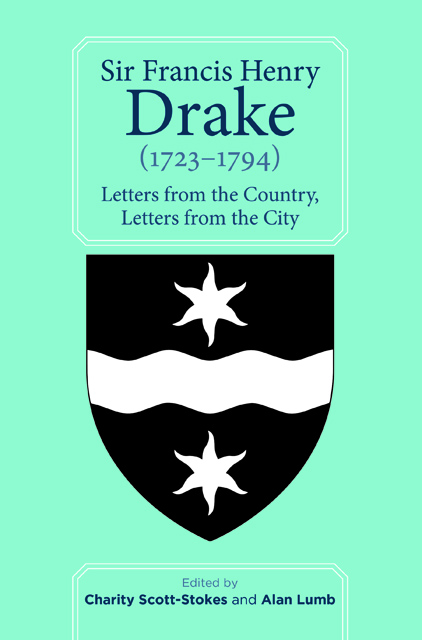Book contents
- Frontmatter
- Contents
- List of illustrations
- Acknowledgements
- Abbreviations
- Timeline. Design: Jonathan Hepworth
- Introduction
- 1 General Introduction
- 2 Elections and Infrastructure
- 3 Buckland Abbey and Nutwell Court: Buildings
- 4 Nutwell: Planting the Landscape
- 5 Healthways and Two Eighteenth-Century Devonshire Estates
- Editorial Method
- Bibliography
- Index
- Devon and Cornwall Record Society
- Devon and Cornwall Record Society Publications
2 - Elections and Infrastructure
Published online by Cambridge University Press: 14 June 2023
- Frontmatter
- Contents
- List of illustrations
- Acknowledgements
- Abbreviations
- Timeline. Design: Jonathan Hepworth
- Introduction
- 1 General Introduction
- 2 Elections and Infrastructure
- 3 Buckland Abbey and Nutwell Court: Buildings
- 4 Nutwell: Planting the Landscape
- 5 Healthways and Two Eighteenth-Century Devonshire Estates
- Editorial Method
- Bibliography
- Index
- Devon and Cornwall Record Society
- Devon and Cornwall Record Society Publications
Summary
2.1. Working a Pocket Borough in the Eighteenth Century
At the beginning of the eighteenth century the political impact of the ‘Glorious Revolution’ of 1688 was still working itself out. Power had shifted to Parliament but the relationship between Parliament, the sovereign, and the ministry was not set out in any constitutional document. The Bill of Rights (1689) limited royal authority and gave Parliament control over money-raising and freedom of speech for MPs, although it was not until the Triennial Act of 1694 that real restrictions were imposed on the Crown.
The Triennial Act was intended to ensure there were regular sessions of Parliament and, by each lasting a maximum of three years, to limit patronage by the ministry, but, despite its good intentions, the Act brought serious unintended consequences. With a new government every three years, and additional ones when there was a new monarch, after 1695 there were ten elections in twenty years. A divided and rapidly changing society led to scurrilous leafleting and street mobs, though not in Bere Alston, where elections were conducted very differently. In the large centres of population, sweeteners and bribes proved costly where the seats were contested and led to constant election fever, talked of as the Rage of Party. One Whig clergyman wrote:
The Number of Ale-Houses is increas’d near two thirds since the Triennial Act in most Corporations, to the great Corruption of the Age. An idle Fellow who cannot bring his Mind to live by his Labour, is sure, if he has a Vote, to procure a Licence to sell Drink; by this means his Neighbours are drawn in to be as idle as himself. Thus Drunkenness and Idleness march before, and Poverty follows close after, thorough [sic] the whole Parish.
There was a growing belief that a longer period for each parliament would lead to greater political stability, yet, as Langford observes: ‘An opposition which enjoyed no immediate prospect of an election had an interest in encouraging extra-parliamentary agitation, even violence.’
After a period of Tory rule, in 1715 the Whigs gained an overwhelming majority. Once in power, supporting the Hanoverians, and with no constitution to limit Parliament's powers, their propagandists stretched every sinew to undermine the Triennial Act. In reality, times were very uncertain.
- Type
- Chapter
- Information
- Sir Francis Henry Drake (1723-1794)Letters from the Country, Letters from the City, pp. 15 - 22Publisher: Boydell & BrewerPrint publication year: 2019

